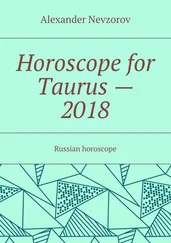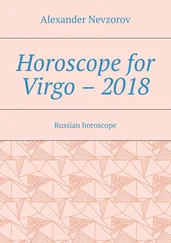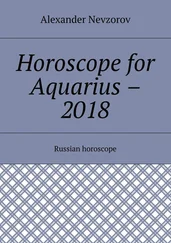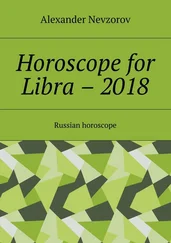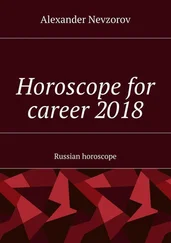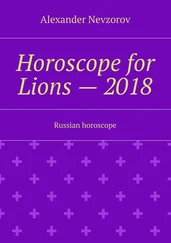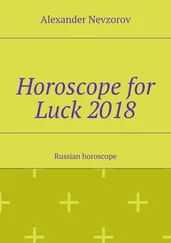I could only reply that I received the Lucy information, already edited by Rado, either direct or via one of Rado's couriers. In the latter case it was always in a sealed envelope. I was also able to assure the director that I had never left the material lying about, so there was no question of substitution.
After the ordeal, when I felt completely sucked dry of all information and also extremely tired, as I had been at it for eight hours with my senses alert the whole time, I was asked to withdraw to my bedroom as the others "had some matters which they wished to discuss." I felt rather like the prisoner when the jury have withdrawn. After an interval- it may have been half an hour, though it felt like an age - the director joined me. He appeared to be in an extremely good humour and slapped me jovially on the back. He stated that the Swiss affair was not yet cleared up and would not be until the end of the war when a military mission would be sent to investigate the whole thing on the ground in Switzerland and Germany. In the meanwhile, there was nothing with which I could be reproached and as far as the Swiss debacle was concerned I was entirely exonerated and he thanked me for my efforts in Switzerland and also for my plans and attempts to re-establish the network after my release from jail. As regarded Lucy and Pakbo, he felt that I had been perhaps a little naive.
"These two individuals were not motivated by ideological reasons but were primarily concerned with gain. There is no doubt that after their release from prison"- Pakbo, of course, had never been arrested but that was a minor matter- "they had obviously been approached by the British Secret Service who had seduced them away by gold in order that in the future they could send false information in order to hinder the advance of the victorious Red Army."
He regarded the fact that I had not been questioned by the British after my release as proof positive that Lucy had been "got at" by the British. He was quite satisfied that I had had nothing to do with this British plot and added that it was quite clever of the British not to approach me as it was not likely that I would put myself into the "Bear's embrace" if I had had a guilty conscience and had accepted a British offer to double-cross.
As regarded Rado, he said that measures were being taken to bring him to Moscow by force. Rado's refusal to come he attributed to pressure brought to bear by the British, who were threatening reprisals against Rado's wife, still in Paris. In any event he would come to Moscow in the end. "Very soon there will be no place in the world where it will be possible to hide from the Centre."
In the meanwhile he advised me to leam Russian as quickly as possible and said that a good job would be found for me in Moscow. It would be dangerous for me to go abroad for some time as my arrest would have "blown" me to all the counterespionage services in the world and no doubt the Swiss would have already supplied them with my particulars, fingerprints, etc. It would therefore be necessary to let things calm down for a period before I could be used abroad again.
When he left me I sank onto my bed exhausted. I was dog-tired physically and mentally. I slept like a log that night and woke late next morning. The sun was shining brightly and was reflected gaily off the glistening snow on the rooftops. Moscow was a pleasanter place than it had seemed for some weeks past. I might still be behind the Iron Curtain but my name was now cleared and, come what may, I was still free and alive- and that is a lot in Soviet Russia.
Many books have been written about life in Russia by outsiders in privileged positions and a few have been written by privileged Russians themselves. The number of the latter are so small that I have included here a chapter on life in Russia as it affected me - a privileged foreigner but living to all intents and purposes as a Russian. As a person with some training in observation and deduction it was interesting to see the Soviet way of life from the inside, and a brief note on what I found is perhaps worth recording.
Living problems in Russia divided themselves neatly up under three heads: food, housing, and heating, but all three were mutually interdependent since, if one category of food was obtained, then it was equally certain that a similar category of housing and heating would be available. Money did not really enter into it unless one was in the millionaire class, when all would have been available. Money was no criterion as regards the rations drawn and the privileges obtained; these depended entirely on position and work done. As far as that went, it could be said that the system was purely Communist and economically sound, as it based the standard of life of the individual on the service which he performed for the state. But into this neatly stacked deck of Communist cards there must be inserted the jokers of the black market and privilege by position, and these completely threw out of doctrinal gear the whole economic machine as applied to the individual.
Food was not rationed to the individual but was allocated by the state to the organisation or trades union to which the individual belonged and this organisation in its turn parcelled out the food on its quota to the particular individual- the amount depending upon the productive effort or the particular needs of the individual concerned. In practice this scheme applied only to rye bread and cabbage, the only foods the average worker obtained on his basic ration. Meat, butter, etc., were reserved for those in higher production groups or groups considered by the state more worthy of such luxuries.
These basic rations of bread and cabbage were issued only to workers and as a result everyone over the age of fourteen was bound to take a job in order to obtain what might seem to be the bare essentials of life. An exception was made for women with over two children under fourteen. They could obtain bread cards and certain other foods in the lower rationed category even though they did not work. If, however, they wished to obtain clothing coupons or supplementary rations over and above the basic, then they would have to go out and work. The other exceptions were the wives of generals and other Russians holding equivalent rank, who were excused from all work and received rations in a much higher category. If, in the case of generals' wives, their husbands were killed, these privileges continued; on the other hand, no widow of an ordinary Russian soldier killed in action received any sort of pension or privilege.
Generally speaking, there were three kinds of shops in Moscow. Those which sold goods against coupons and vouchers; those "commercial shops" which sold everything freely without coupons, vouchers, or any formality - but at a fantastic price; and the special shops where only privileged persons in certain categories could buy. In addition, there was the black market. Every effort by the Soviet authorities, ranging from executions and exile to education, had entirely failed to eradicate the "free market" and in 1945 it was flourishing as freely and probably on the same sites, as it had in 1919 after the Revolution.
Before dealing with the more legal means of purchase, a word about the black market may not be amiss. The Moscow black markets often occupied the sites of the old peasant markets, or indeed any large open space, and in these were crammed as many as ten thousand buyers and sellers all taking the opportunity of buying goods at a price considerably less than that which prevailed in the "commercial shops." The militia made no attempt to control these activities but contented themselves with patrolling the approaches and seldom stopped anyone who was old, infirm, or crippled, as were the majority of the stall holders. On the other hand if any healthy or well-dressed individual was seen leaving the market he or she would almost certainly be taken to the nearest militia post and stripped. All cash and valuables and any commodities which might have been bought would then be removed from the arrested person and he would then be released, probably also without his shoes. As a result it was extremely rare for any respectable householder to deal in person with the black market. For example, my own housekeeper, Olga, was visited almost daily by an aged crone whose sole duty in life was to act as go-between for the more well-to-do housewives in their dealings with the black market. Though in theory illegal, the market received de facto if not de jure recognition from the authorities. On one occasion we failed to receive our weekly meat ration but instead we were sent some tins of canned fish and told that we could exchange this for meat on the black market!
Читать дальше




